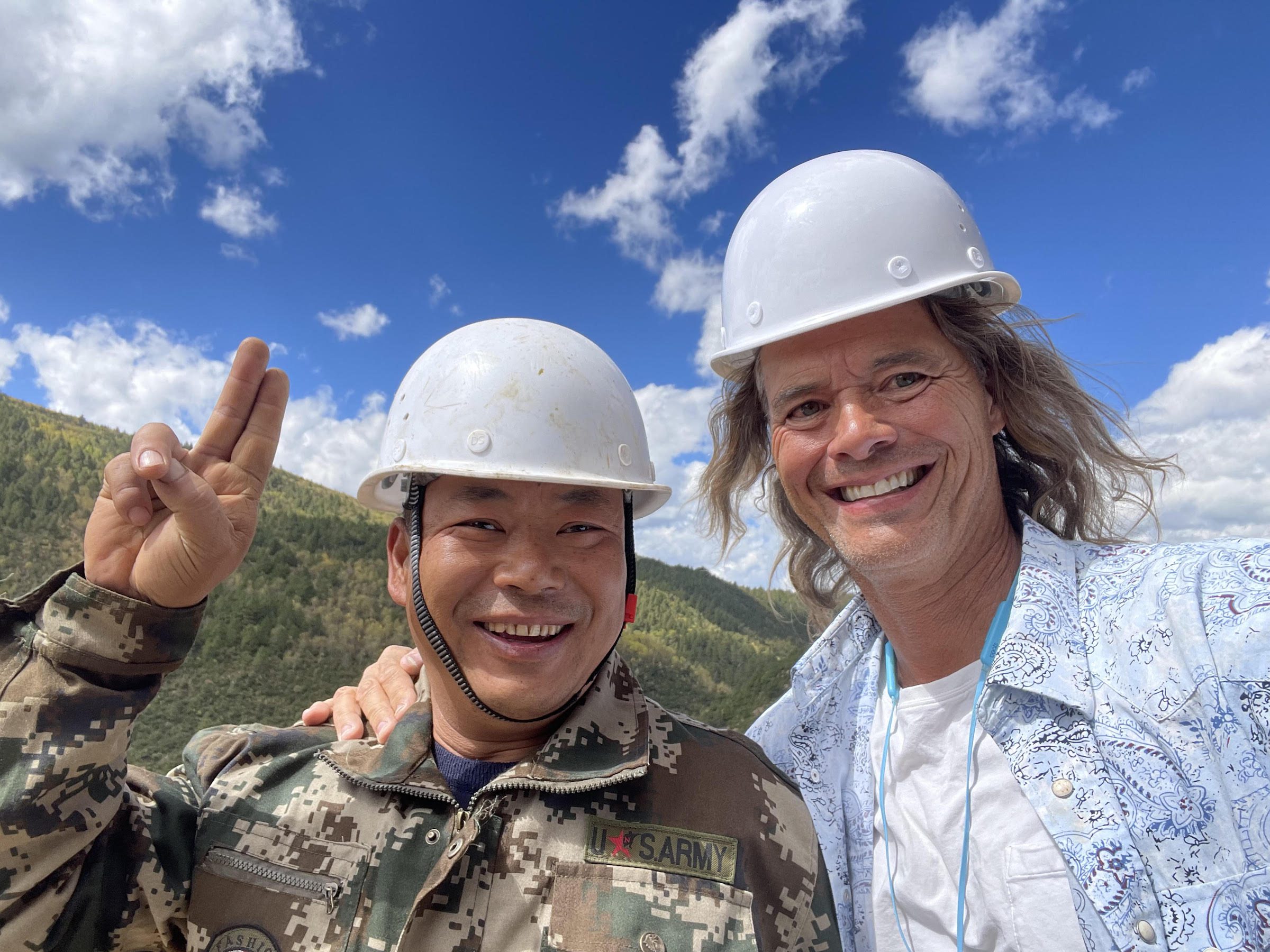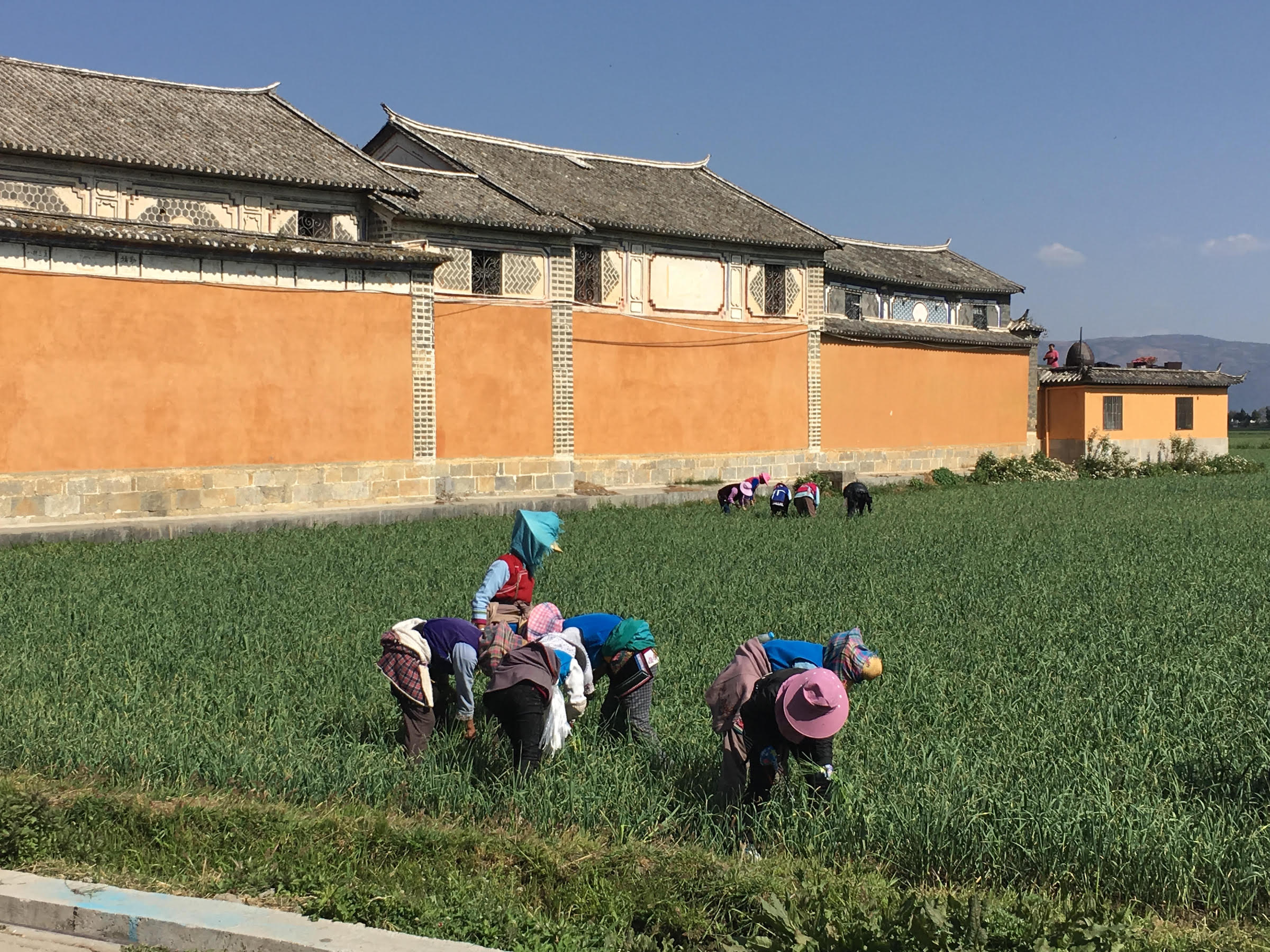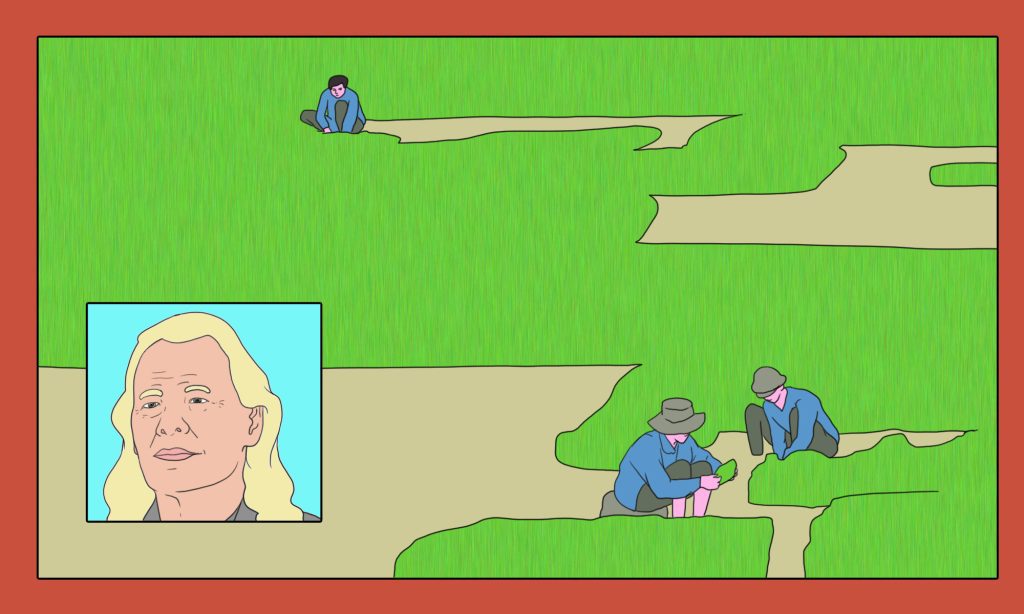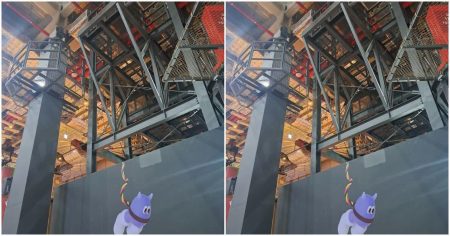Brian Linden and his wife Jeanee made the big decision to move to rural China and put all their money into a project there. Over the years, their story has been covered by the international media, and now they are facing uncertainty about the future of their work in China after 40 years.
People like the Lindens have played a significant role in the relationship between the U.S. and China over the past 50 years. However, with the two countries becoming increasingly distant politically and economically, there's uncertainty about the future of the Lindens' business in rural Yunnan Province. This uncertainty mirrors the uncertain state of the diplomatic relationship between the two countries.
Linden went to China with the goal of promoting grassroots relationships between people. He chose to work in Yunnan and formed a partnership with local governments, who were eager to create jobs and increase tax revenue in their areas.They collaborated with local government officials to restore heritage buildings and create boutique hotels that showcase local culture, food, and architecture. After a two-year search, they settled in the village of Xizhou, which has a large community of ethnic Bai people, some of whom are descendants of Genghis Khan.
With the support of the local government, they gained access to two nationally protected structures, large wooden mansions with rammed earth walls and internal courtyards. They renovated these structures, which had been uninhabitable for many years, and turned them into boutique hotels surrounded by fields and paddies.
The Lindens invested over $600,000 in their first Chinese building and started homeschooling their two sons after selling their home in the U.S. The community celebrated the opening of the first hotel, which focused on rural revitalization and poverty alleviation rather than luxury.
During a busy day, the village was bustling with tourists, and Linden was helping with interpreting and interacting with guests. He has become known as a representative of the American approach to doing business ethically and responsibly in the community.

In the past, Xizhou was thriving with tourists, including Americans who were buying local crafts. Linden, busy with his responsibilities, became a well-known figure in the community and a promoter of the idea of benefiting the local community through ethical business practices.
He enjoys the role. "I take photos with about 200 people every day. I'm a foreigner who goes against the message machine in Beijing to some extent," he said, referring to the often anti-America propaganda from the government media. "But the people want me to hold their babies, and I do. Chinese people need to see a different America than they see in the media."
Surprisingly, he has become a bit of a media star in China, with video teams frequently showing up at his properties to get his latest thoughts on the hospitality industry or learn about a new project. His latest book, "Redefining Diplomacy: One Village at a Time", was published this year by China’s top publishing house. Linden spent three months in the spring giving lectures, hosting book signings and doing television shows around the country. He tells interviewers that he represents a part of America compromised of pragmatists who believe in finding ways to work with China, rather than the hawks who dominate official Washington discourse. It’s unclear whether the conflicting images of Americans in Chinese media are causing confusion, or if that’s the goal for a government in a country where contradictions are everywhere., was published this year by China’s leading publishing house. Linden spent three months in the spring giving lectures, hosting book signings and doing televisions shows around the country. He reminds interviewers that he represents a part of America comprised of pragmatists — “We must find ways to work with China” — rather than hawks who dominate official Washington discourse. It’s unclear whether the clashing images of Americans in Chinese media is causing cognitive dissonance, or if that’s the goal for a government in a country where contradictions are everywhere.
Brainwashed in Beijing
Linden says he’s not an apologist for China, preferring to be known for a more balanced American view, but that hasn’t shielded him from criticism from other foreigners in China or pundits abroad. “Some foreigners think I’m brainwashed. But I think they’re brainwashed, because they never leave thier expat enclaves, Western-style restaurants, and international schools. They can’t credibly use their cloistered experiences to tell the world what China is like. Many of them are not willing to take the risk to leave their cocoon.”
He knows that sometimes he comes across as pro-China. But he doesn’t want to do anything that would have a negative impact on American policy toward the country. “The U.S. embassy continues to say that people-to-people connections are good for the relationship, and the embassy folks are among my best supporters.”
He said the embassy has been concerned about American brands intermingling with historic sites. In one infamous case, Starbucks closed its shop in Beijing’s Forbidden City after people expressed outrage on social media and property managers insisted the outlet rebrand itself to remain. Linden has steered clear of such controversies, and so far, remains above the bilateral fray.
“I hope I can serve a useful purpose between the two countries,” he said. “I'm here to share authentic stories about a China that many Americans don’t hear. I love this country, but I love America too.”
Linden chuckles when he thinks about how much money he could make if he created a hotel chain with infinity pools around the country. That wasn’t the life he wanted to have. He managed to survive, just barely, the zero-COVID era, with business declining by 40 percent. The crisis seemed not as bad in the rural areas, and Linden was supported by his local government partners, who sometimes “forgot to collect their share of revenues.” The last few months have been much better, with occupancy rates setting records, even without American visitors who have not returned in pre-COVID numbers and may not for the foreseeable future.

The Lindens have 10 locations throughout the country, such as a large Ming/Qing courtyard outside Suzhou, a newly built rammed earth hotel that won the American Architecture Award in 2019, and four new mountain projects in Yunnan's Tibetan area of Shangri-La. They have also established volunteer libraries, a museum, and education sites, and have explored microfinance in the small villages near their hotels.
Linden has been considering the future a lot. He and his wife are getting older, and COVID was an exhausting, nearly existential experience. The government seems more xenophobic. "China never makes you feel secure in your status. It's not an immigrant country, and it's difficult to obtain visas. We enjoy being here and the local people have welcomed us. But there are many institutional challenges that make it feel insecure."
He will keep the kettle on for you, maybe
There may come a time when the central government tells them to leave. They have invested a lot of equity here and haven't taken much out of China. However, they have started giving shares to their team members, all of whom are local Chinese, so if they leave, the team members can continue. Linden believes it's fair to give back to the people who have dedicated their lives to this endeavor. "So many people have kept us afloat for so many years."
Linden is concerned that the idea of corporate social responsibility is not popular in China, making their model harder to replicate and expand. In fact, the government disapproves of the private sector getting involved in reducing poverty and working for the public good. But he and his wife continue to do just that, operating quietly — and hopefully non-threateningly — in the countryside, far from the center of power. They have allies in local government officials, but ultimately answer to Beijing. The Lindens may not be around to see the tension between the Communist Party and the private sector resolved, which adds more uncertainty.
It's a crucial moment for the relationship between the two countries and for the Americans and Chinese who have helped shape it as the world's most important. Like the large international corporations that have profited from being "in China for China," the Lindens will not leave China willingly. However, they now feel much more vulnerable to uncertain changes and situations. With unreliable guidance, Linden continues to travel around the county in various roles, such as citizen diplomat, entrepreneur, social scientist, and "foreign village head." He's even bringing back one of his now-adult sons, whom he homeschooled with his wife in China, to join the team. He has more plans than ever, but the suitcases, once filled with schoolbooks for his young kids, are still under the bed — just in case.
These days, when the shadows fall over the garlic fields near one of his hotels, he gets nostalgic, realizing that one of the best outcomes of their time in China is what's happened to his family. "We wanted our children to see their mother and father pursuing a dream," Linden said. "Everything was made as a family decision. It has been a project for the family. That is very special."







